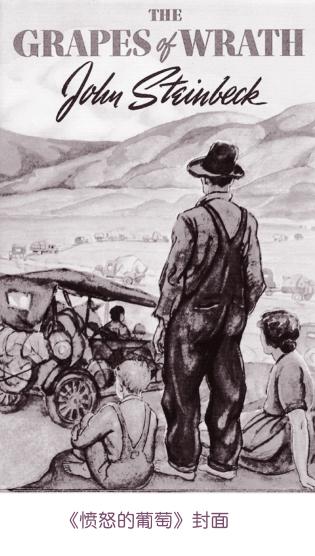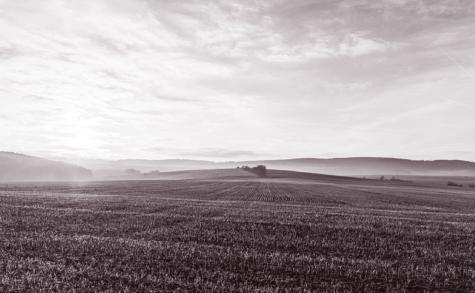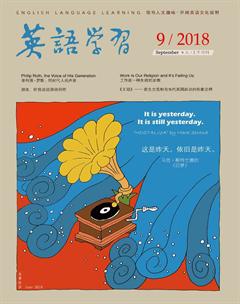朋友,听我说说那块田吧
王伟滨
《马太福音》中记载,见到耶稣被定死罪,叛徒犹大后悔了,便要把那卖主得来的脏钱还给祭司长和长老们。他说,“I have sinned by betraying innocent blood.”(我卖了无辜之人的血是有罪了。)但是那些人却不收这钱,于是犹大就把钱丢下,自己去荒野里吊死了。祭司長捡起那钱说,“It is not lawful to put them in the treasury, since they are blood money.”(这是血价,不可放在库里。)后来,他们就用这钱买了一块地,专门用来埋葬异乡人。(Matthew 27:3—10)
不过,按照《使徒行传》的说法,犹大并没有悔悟,而是用那30块钱买了一块地,大概是想从此安安稳稳地做个农户。但是,他毕竟是遭了天谴的,不知怎的,忽然扑倒在他这片田地上,肚腹崩裂,肠子都流了出来,死相极为可怕。(Acts 1:18—19)
虽然两种版本记述的犹大最后的行为颇为不同,但那笔钱的去向却是一样——都是买了一块地,那块地在后世被称作“血田”(Field of Blood)。
我更倾向于相信《使徒行传》中的记载:也许,追随导师漂泊多年的犹大,真的对耶稣许诺的缥缈“天国”厌倦了,他渴望像别人一样,在今世拥有自己的一块实实在在的田地,哪怕只是小小一块……

1862年,林肯政府通过的一份《宅地法》(Homestead Act)规定,任何年满21岁,无武力反抗美国政府行为记录者,皆可申请免费获得一块田地(通常160英亩),耕种数年后,即归私有。当然,政府此举,是为了对抗南方的奴隶主大庄园经济。数以百万计的美国人得益于此法案,终于成了“有家可归者”。
然而,这世上更多的人仍然为梦想中的那块田地辛苦奔波着,就像小说《人与鼠》1(Of Mice and Men)中的莱尼(Lennie)和乔治(George)。
莱尼是个高大的家伙,傻傻的,只是喜欢抚摸柔软的小东西——谁不是呢?—— 虽然他触到的常常是生活坚硬的棱角。乔治是个小个儿,很精明、很务实。两人搭伴,四处做农活。
莱尼最喜欢乔治给他讲,他们那块田地的事。


“Guys like us, that work on ranches, are the loneliest guys in the world. They got no family. They dont belong no place. They come to a ranch an work up a stake and then they go inta town and blow their stake, and the first thing you know theyre poundin their tail on some other ranch. They aint got nothing to look ahead to.”2 (那些像我们一样的人,在别人家农场上讨生活,是这世上最孤独的。他们没家没业,四处漂泊。找个农场,干上一阵活儿,挣上几个钱,然后就跑到城里,花个精光。再后来,就又跑到别的农场去卖力气。他们没有盼头儿。)
每当乔治说到这里,莱尼就兴奋起来,大喊着:“Thats it—thats it. Now tell how it is with us.”(对呀——对呀。接着说说咱们怎么样吧。)
“With us it aint like that. We got a future. ... Someday—were gonna get the jack together and were gonna have a little house and a couple of acres an a cow and some pigs and—”(咱们就不同了。咱们有盼头儿……将来——咱们攒够了钱,就建个小房子,买几亩地,养一头牛,几头猪,还有——)
“An live off the fatta the lan. An have rabbits. Go on, George! Tell about what were gonna have in the garden and about the rabbits in the cages and about the rain in the winter and the stove, and how thick the cream is on the milk like you can hardly cut it. Tell about that, George.”3(还有,咱们靠肥沃的田地过活。咱们还要养兔子。接着说呀,乔治!说说咱们在菜地里种啥,还有,笼子里的小兔子,还有冬天里的雨,还有火炉,还有,牛奶上的奶油那么稠,用刀都削不动。说说这些事吧,乔治。)
“靠肥沃的田地过活”,这是多么美好的情景呀。
为了那个有关几亩田地的梦,他们整日劳作、省吃俭用。
可是,一天,傻傻的莱尼不小心伤了人命,于是,偷了人家的猎枪跑到山里。乔治不想莱尼被围捕他的人们吓到,就一个人上了山。
“乔治,再给我说说那块儿田吧。”莱尼说。
乔治就讲给他听……
“我们现在就去那里吧。现在就去!”莱尼说。
“好,”乔治说着,在莱尼的脑后扣动了扳机。
乔治和莱尼这样的人,有千千萬万。
他们是地道的农民,原本有自己的家,有自己的田地;然而在一夜之间,那个叫做“银行”的怪兽,就开着轰隆隆响的推土机,把他们的家园毁掉了。
《愤怒的葡萄》(The Grapes of Wrath)中,从监狱里假释的乔德(Joad)回到故土,满心渴望着可以在自己的田地上靠诚实劳作过活。但是,等待他的,却是凋敝的农舍和准备离去的家人。“银行”,还有那个名叫“公司”的怪兽,要收走他们的房屋,把他们从祖祖辈辈生活的土地上赶走。
时代变了,守着几亩田,优哉游哉过活的日子没有了。
就像那个开着推土机来驱赶农户的家伙说的,只有坐拥几千亩田地,开着联合收割机的人,才配“靠着田地过活”。穷棒子们,还是卷上包裹,去别处觅食吧。
对于农户来说,田地是活的,与他们的血脉相通——是真正的“血田”,他们不能割舍。这是那些开着大拖拉机、大推土机的人们所不懂的——在他们看来,开着大机器在田地上驶过,只是一份“每天三块钱”的工作;在他们看来,傻傻的农民们,也该去找份“每天三块钱”的工作才对。4
And in the tractor man there grows the contempt that comes only to a stranger who has little understanding and no relation. For nitrates(硝酸盐)are not the land, nor phosphates(磷酸盐); and the length of fiber in the cotton is not the land. Carbon is not a man, nor salt nor water nor calcium. He is all these, but he is much more; and the land is so much more than its analysis. The man who is more than his chemistry, walking on the earth, turning his plow point for a stone, dropping his handles to slide over an outcropping, kneeling in the earth to eat his lunch; that man who is more than his elements knows the land that is more than its analysis. But the machine man, driving a dead tractor on land he does not know and love, understands only chemistry; and he is contemptuous of the land and of himself. When the corrugated iron doors are shut, he goes home, and his home is not the land.5(在开拖拉机的人心里,滋生着一种鄙夷,那是只对素不相识、毫不相干的陌生人才有的情感。硝酸盐、磷酸盐,不是田地;棉纤维的长度,不是田地。碳、盐、水、钙,不是人。人是所有这一切,但远不止这一切;田地也远不止什么分析报告。远不止化学构成的人,走在田地上,用犁尖儿翻出一块石头,压低犁柄,避开一片裸露的岩石,蹲在田里吃午饭;远不止化学元素的那个人,懂得远不止分析报告的这片土地。但是开机器的人,驾驶着死拖拉机,在一片他根本不懂也不爱的土地上驶过,他懂得的,只是化学;他鄙视田地,也鄙视他自己。波纹铁门关上时,他就回家去,他的家,不是这片田地。)
对于懂得田地的人来说,田地从来不只是一块田地,它还关乎一个人的尊严、自由、独立。即使傻傻的莱尼也知道,他们与那些无足轻重的人是不同的,因为他们有个盼头,那就是他们的那块田地,在那块田地上,他们不用看别人脸色,不用听别人命令,他们可以自在地生活。
银行夺走的,不仅是像乔德一家这样普通农户的田地,更是他们作为人的尊严、自由、独立。从此,他们成了一群人人厌弃的流浪汉,被人轻蔑地称作“Okie”(6饿鸡)。“They were hungry, and they were fierce. And they had hoped to find a home, and they found only hatred. Okies—the owners hated them because the owners knew they were soft and the Okies strong, that they were fed and the Okies hungry; and perhaps the owners had heard from their grandfathers how easy it is to steal land from a soft man if you are fierce and hungry and armed. The owners hated them. And in the towns, the storekeepers hated them because they had no money to spend. There is no shorter path to a storekeepers contempt, and all his admirations are exactly opposite. The town men, little bankers, hated Okies because there was nothing to gain from them. They had nothing. And the laboring people hated Okies because a hungry man must work, and if he must work, if he has to work, the wage payer automatically gives him less for his work; and then no one can get more.”7(他们饥饿、凶狠。他们希望找到个家,找到的却只是仇恨。饿鸡——有田人恨饿鸡,因为有田人知道,自己很软弱,饿鸡却很强悍;自己有吃有喝,饿鸡却饥肠辘辘。或许有田人还从老辈儿那里听说,要是你够凶、够饿,手里还有家伙,那从软弱之人手里抢块田地就特别容易。有田人恨他们。在镇上,店主们也恨他们,因为他们没钱可花。对于店主们来说,穷鬼最可恶,阔佬儿最可爱。镇上的人们,开小银行的,也恨饿鸡,因为从他们身上啥也赚不到。他们分文皆无。做工的人们也恨饿鸡,因为挨饿的人总要挣钱吃饭,他要挣钱,必须挣钱,那么付钱的人,就自然要他多干活少挣钱;这么一来,谁也别想多挣了。)

